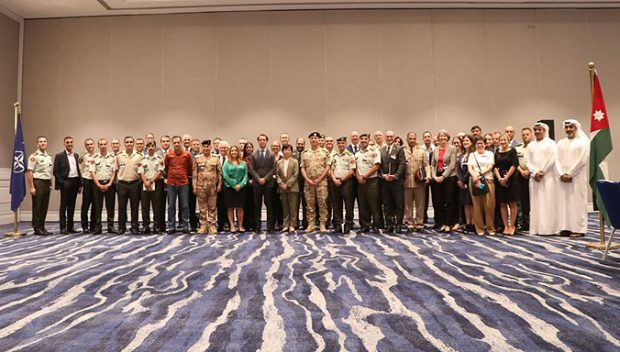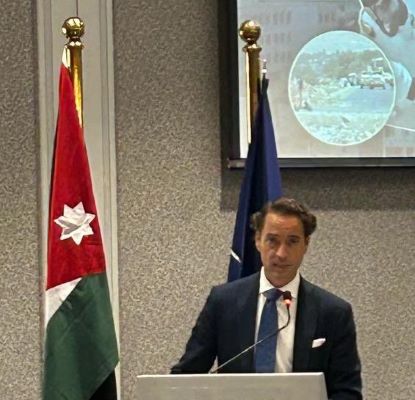Jordan: NATO allies, partners address Small Arms and Light Weapons control

Participants in the conference on Small Arms and Light Weapons (SALW) control co-hosted by NATO and Jordan (NATO)
By Habib Toumi
AMMAN: NATO Deputy Assistant Secretary General for Political Affairs and Security Policy Javier Colomina has welcomed the news indicating the possibility that Saudi Arabia and Israel could sign an agreement to normalize relations between them.
The possibility of normalization is “good news,” Colomina said in an interview with the Jordanian Al Mamlaka (The Kingdom) Television.
The transatlantic alliance is closely following all events across the world, especially in the Middle East, given that they have a significant impact on stability and security around the globe, he added.
Colomina was in Amman to participate in a conference on Small Arms and Light Weapons (SALW) control co-hosted by NATO and Jordan.
The event was the first of its kind on SALW organized with partner countries, as part of NATO’s defense and related security capacity building package for Jordan.
In the interview, Colomina ruled out the possibility of either Saudi Arabia or Israel becoming NATO members, saying “it is not on the Alliance’s table.”
The Deputy Assistant Secretary General stressed that NATO is a Euro-Atlantic organization with a geographical footprint, and therefore countries that do not belong geographically to the Euro-Atlantic area cannot become members.
If either of the two countries wants to strengthen its relationship with NATO, it will be through partnership, but not as a member, he added.

Colomina addressing the conference
Colomina, who is also NATO Secretary General’s Special Representative for the Caucasus and Central Asia, pointed out that Israel is a current partner in the international coalition within the Mediterranean Dialogue Initiative, but it will not be able to become a member, while Saudi Arabia maintains dialogue with the Alliance.
NATO’s “open door policy” is based upon Article 10 of the Washington Treaty that states that membership is open to any “European State in a position to further the principles of this Treaty and to contribute to the security of the North Atlantic area.”
Since NATO was created in 1949, its membership has grown from the 12 founding members to today’s 31 members through nine rounds of enlargement in 1952, 1955, 1982, 1999, 2004, 2009, 2017, 2020 and 2023.
According to NATO, the two-day SALW conference in Amman provided an opportunity to reflect on initiatives, lessons learned, and best practices in SALW control in the Middle East and North Africa in particular, and to exchange views on challenges and potential solutions at regional and global levels.
The participants included high-ranking officials from Allied and partner countries, along with representatives from international organisations including the United Nations, the European Union, the League of Arab States, Interpol and the World Customs Organisation.
The first three panels addressed challenges and initiatives undertaken at national, regional and global level respectively. The fourth panel focused on the impact that recent developments in manufacturing, technology and design of SALW have on the efforts to tackle the illicit trafficking of these weapons.

























































